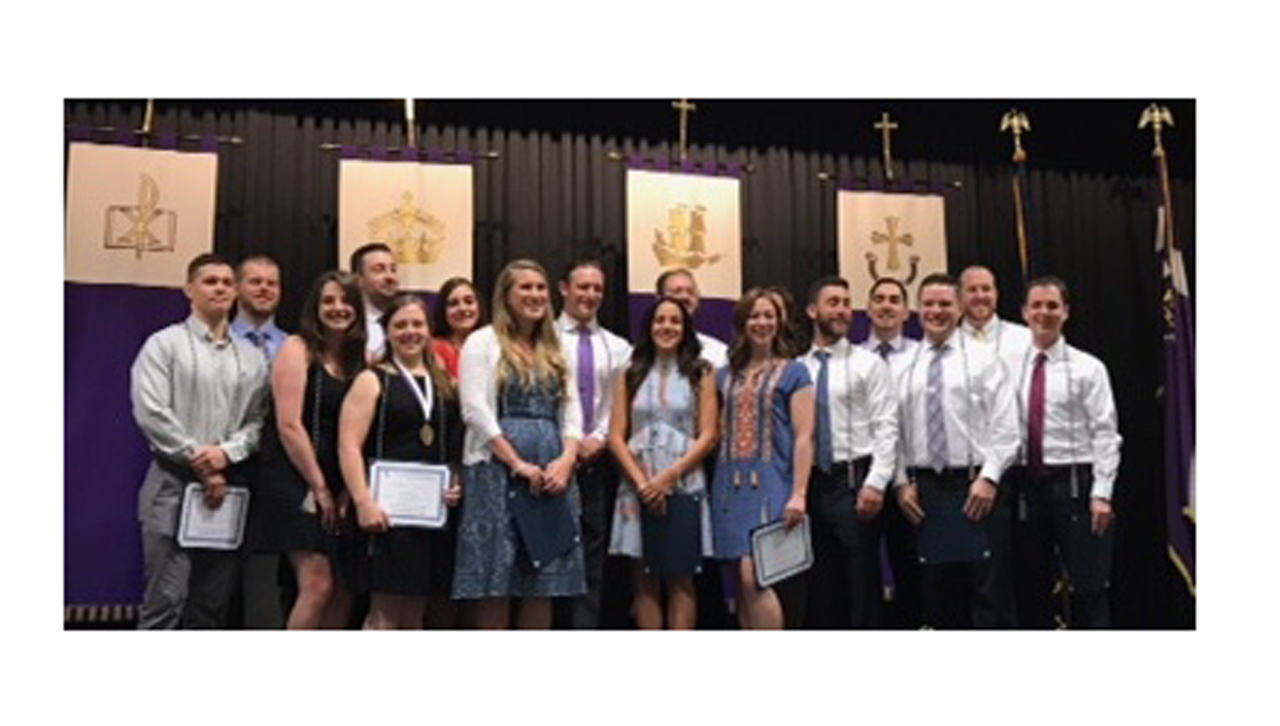Recognition for Student Pro Bono Services

This article originally appeared in the Challenges, the PCPS newsletter.
For the past two years, the Department of Physical Therapy has granted national recognition for physical therapy students with outstanding service. At our graduation celebration in May of 2017, the department awarded 20 Doctor of Physical Therapy students with membership into the Physical Therapy National Pro Bono Honor Society. This is over 50 percent of the graduating class! This number is evidence of students championing professional core values such as altruism, compassion
Students who provide 20 hours of pro bono service by graduation are eligible for membership in the honor society. Students provide pro bono services in the student-run physical therapy clinic as part of the Edward Leahy Jr. Clinic. In the clinic, students provide examination and intervention to patients who would not otherwise have access to physical therapy care.
In 2014, eight institutions founded the PT National Pro Bono Honor Society. Administered through the Widener University’s Institute for Physical Therapy Education, this honor society recognizes outstanding PT students who provide pro bono services as part of their education. In the fall of 2015, The University of Scranton Physical Therapy Department became a member organization. Membership allows our
institution to give out awards annually to outstanding graduate students.
Nominees to the honor society have increased dramatically over the past two years. In 2016, our first member, Brandon Tunis, was honored for his efforts in organizing the clinic and increasing classmates’ participation. The following year, 20 graduates of the Class of 2017 were inducted into the Honor Society, including: Alexander Arrow, Nicholas Constantino, Daniel DiPaola, Daniel Dolphin, Coleen Joyce, Nicholas Laurente, James Leighty, Charles Lewis, Jennifer Lewis, Colleen McMahon, Joseph Martzen, James Moser, Katelyn Moyer, Jesse Myers, Megan Nevers, Cory Pasquarelli, Gabrielle Pierce, Dana Principe, Robert Roncek and Steven Roughton.
Current students also follow the pathway to excellence; they continue to serve in the clinic, provide pro bono services, and reflect the core values of the profession before they even enter professional practice. No doubt their experience will shape their practice for years to come as they continue to serve marginalized people.
Read Challenges here.






